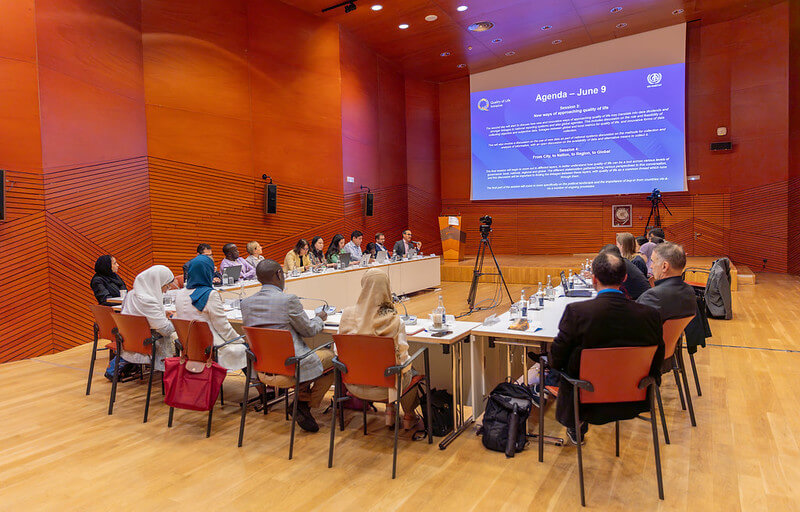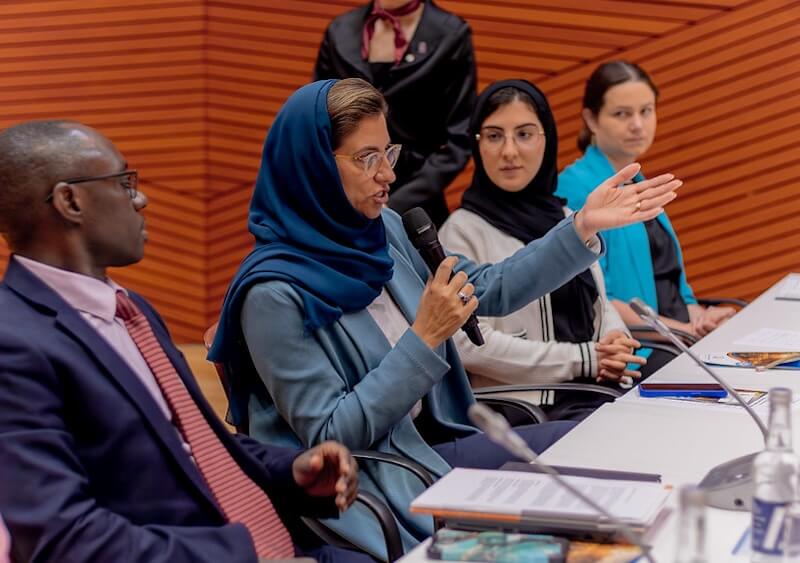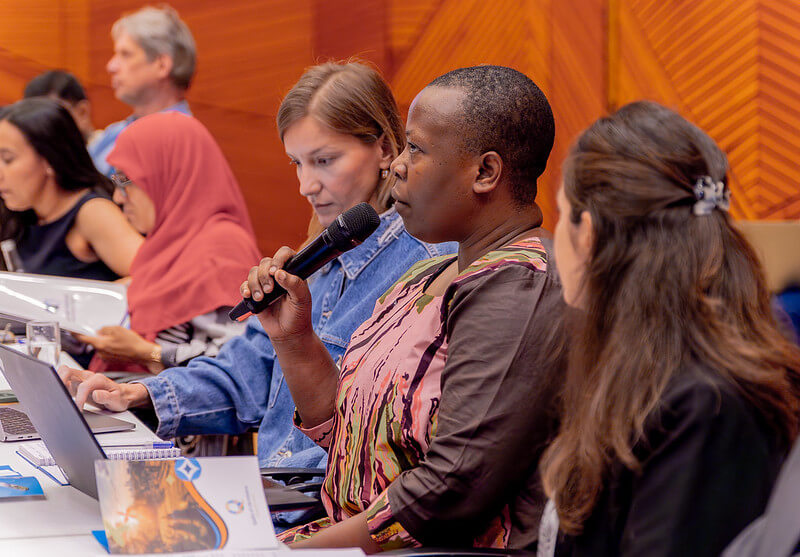The Quality of Life Initiative held a roundtable event June 8-9, 2024, in Bilbao, Spain, ahead of the 8th International Conference on Big Data and Data Science 10-14 June.
The two-day event gathered representatives from National Statistics Offices (NSOs), local and national governments, regional development banks, and academic researchers to focus on integrating quality of life metrics into national and local reporting systems, aligning with the broader objectives of the Initiative.

The roundtable was part of a series of strategic meetings designed to explore various facets of the quality of life landscape and to foster collaboration between NSOs and other stakeholders to better understand how quality of life data can be incorporated into official statistics. Because NSOs play a critical role in data collection and reporting, their insights and cooperation are essential to the Quality of Life Initiative.
By engaging with NSOs, the Quality of Life Initiative seeks to leverage their expertise and existing data frameworks to enhance the accuracy and relevance of quality of life metrics. The participation of local governments, regional development banks, and academic researchers further enriched the discussions, providing diverse perspectives on the integration of quality of life data.

The roundtable was a crucial step in a larger process aimed at developing a comprehensive tool to measure and improve quality of life in cities globally. Previous roundtables and expert group meetings have laid the groundwork by defining quality of life, identifying key indicators, and exploring data sources. The Bilbao roundtable built on these efforts by addressing the technical and institutional challenges of integrating quality of life data into official statistics.
Key takeaways emphasized a need for:
- Improved data flow between local and national levels and innovative pathways for integrating citizen-collected data into official reporting.
- Exploring new data collection methods, such as big data and experimental statistics, while acknowledging the continued relevance of traditional surveys.
- Real-time data and the application of advanced technologies like AI to provide timely and actionable insights.
- Involving communities and private sector data sources in the data collection process and coordination with academia and civil society.
The discussions reinforced the importance of NSOs in the initiative and paved the way for future collaborations.

Moving forward, the Quality of Life Initiative will focus on:
- Building a Community of Practice with NSOs: Engaging participants in an informal community to exchange ideas and contribute to various activities.
- Exploring Concrete Entry Points for Engagement: Collaborating with NSOs on experimental data collection methods and connecting with regional statistical commissions.
- Advancing the Quality of Life measurement tool: Refining the tool based on feedback and preparing for its submission to the Inter-Agency Expert Group on SDGs.